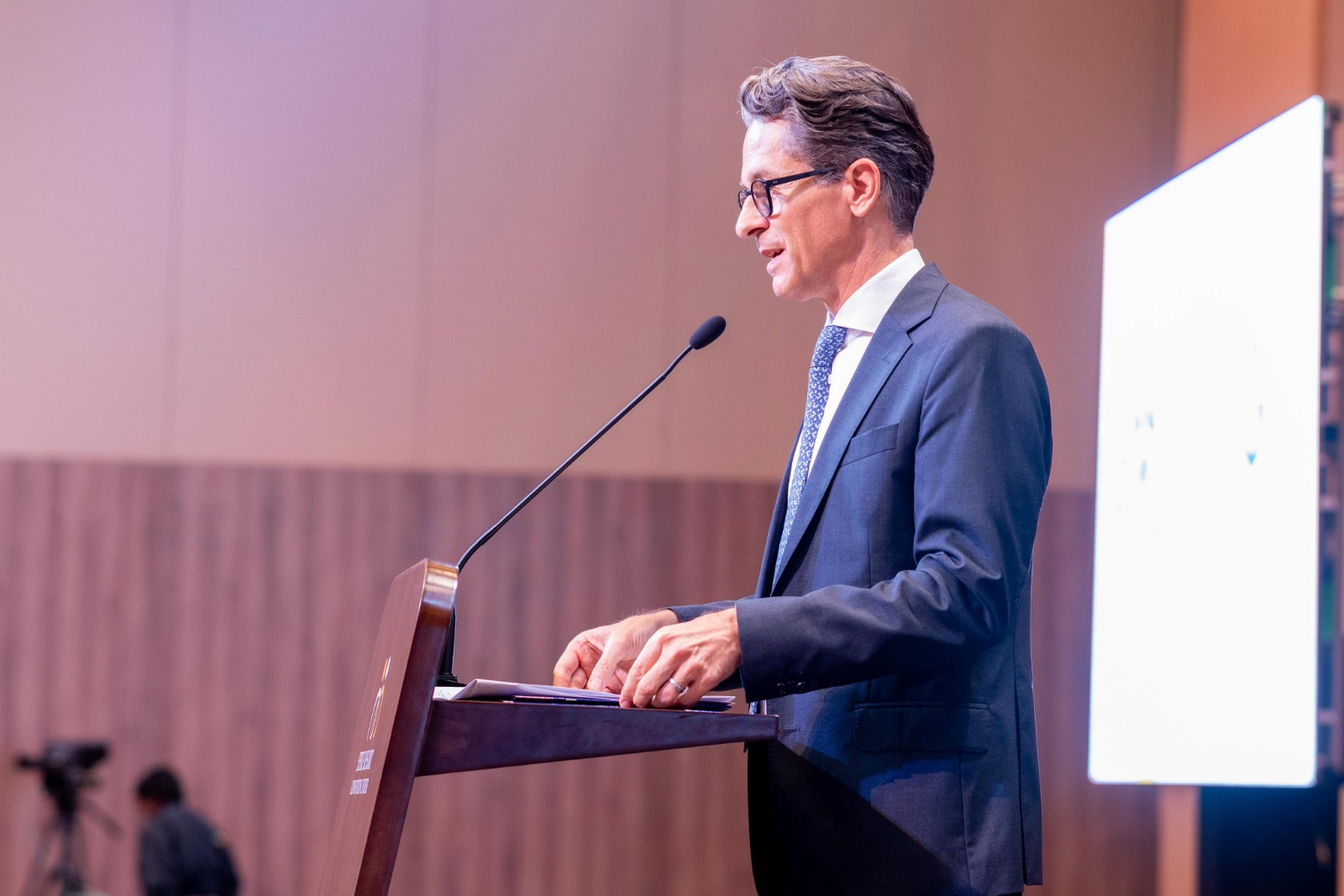The European Union (EU) has committed EUR 150 billion (UGX 602 trillion) to advance Sub-Saharan Africa’s transition to renewable energy as part of its Global Gateway strategy.
Speaking at the Renewable Energy Conference in Kampala, Jan Sadek, EU Ambassador to Uganda, highlighted the EU’s ambitious objective to mobilize EUR 300 billion globally by 2027, with EUR 150 billion designated for Sub-Saharan Africa.
Of this, EUR 3.4 billion is specifically allocated to boost renewable energy and enhance energy efficiency across the region. “Our aim is to support the deployment of at least 50 GW of renewable power and to connect 100 million people to electricity across Africa by 2030,” Sadek said.
Despite recent progress, Uganda lags in clean energy access compared to other countries in the region. While electricity access in Sub-Saharan Africa is around 50%, Uganda’s access rate is 57% nationally and just 38% in rural areas.
In contrast, Kenya has reached a 70% access rate, largely due to significant investments in rural electrification and renewable off-grid solutions.
However, Uganda’s Vision 2040 aligns closely with the EU’s climate goals, and the Global Gateway funds are expected to help bridge Uganda’s energy gap, driving the country toward energy independence and environmental sustainability.
“As Uganda’s primary development partner, we are focused on mobilising finance to attract both public and private investments that prioritise sustainable growth, green transition, and job creation,” said Sadek.
He noted that Team Europe is leading key projects, particularly in rural electrification, renewable energy, and regional energy networks, to support a fair and sustainable energy transition in line with Uganda’s Vision 2040 and National Determined Contributions (NDC).
The EU’s brochure on the partnership highlights various flagship initiatives, including Uganda’s Energy Transition Plan, launched at COP28 in Dubai in 2023.
Uganda’s Minister of Energy and Mineral Development, Hon. Ruth Nankabirwa, emphasised the importance of shifting to cleaner cooking options, such as Liquefied Petroleum Gas (LPG).
“It’s time for Ugandans to adopt clean cooking methods that are both environmentally friendly and safer for health,” she said, encouraging a move away from traditional practices that harm the environment and pose health risks.
Nankabirwa further dispelled misconceptions about LPG costs, explaining, “When used efficiently, LPG is actually more affordable than charcoal, and it helps conserve our forests while reducing health-related expenses.”
This call to action aligns with Uganda’s Vision 2040, reflecting the government’s commitment to sustainable development.
Over the past five years, the EU has mobilised EUR 200 million in grants under the EU-Uganda energy partnership, with potential to attract an additional EUR 1 billion in investments


